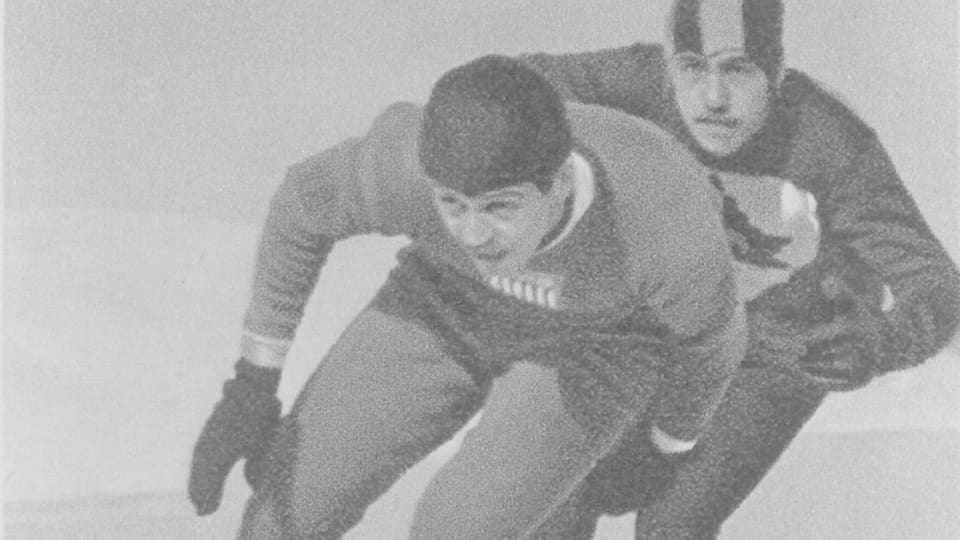
The men’s speed skating competition was organised differently at Lake Placid, using the format that was the norm in North American events at the time. Instead of the traditional series of pairs setting off together against the clock, “packstyle” racing was introduced, where groups of six skaters all started together and competed against each other. Consequently, race management and strategy took on added importance.
John Amos “Jack” Shea was very much accustomed to these types of races. Born in Lake Placid and inspired by Charles Jewtraw, another Lake Placid native who triumphed in the 500m at Chamonix 1924 to become the first-ever Olympic Winter Games champion, Shea learned to skate on nearby Lake Mirror, and was later crowned US all-distance champion in 1929. As he prepared to take part in a competition being held practically on his doorstep, he was already somewhat of a local celebrity.
Fresh from delivering the Olympic oath, Shea engaged in a crowd-pleasing battle with Frank Stack (CAN) in his 500m heat, finishing second but nevertheless advancing to the final.
The first final at the 1932 Games saw two Americans (Shea and John O’Neill Farrell), three Canadians (Stack, Alex Hurd and Willy Logan) and a Norwegian (Bernt Evensen) vie for the medals. Shea’s blistering start took all of his rivals by surprise, and the five-metre gap he generated at the outset would prove sufficient to claim a memorable gold medal, ahead of Evensen and Hurd in a time (43.40 seconds) that equalled the Olympic record.
The next day, the home-town hero doubled his tally of golds in the 1,500m, putting in a dominant performance in his heat and in the final to win in 2:57.70 and become the first American to secure two Olympic winter titles. Hurd and Logan took silver and bronze.
Lake Placid 1932 was Shea’s last Olympic appearance, because he refused out of principle to attend the 1936 Winter Games in Garmisch-Partenkirchen, then under the control of the Nazi regime. Forty-eight years later, the two-time gold medallist would play a pivotal role in the Games’ much-heralded return to Lake Placid in 1980. He also sparked off an Olympic dynasty, as his son Jim competed in the cross-country skiing at Innsbruck 1964 and his grandson Jim Jr. recited the Olympic Oath and emerged victorious from the skeleton competition at Salt Lake City 2002.
Sadly, Jack Shea died in a road accident at the age of 91 just one month before Jim Jr. mirrored his accomplishments in Utah. Jim Jr. carried a photo of his grandfather in his helmet at the 2002 Games, stating after his emotional victory that “now Jack can go up to heaven”.
